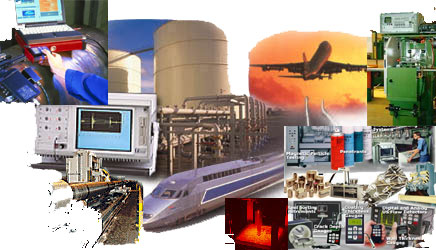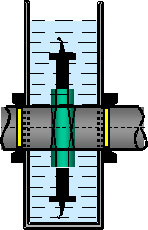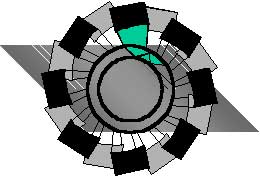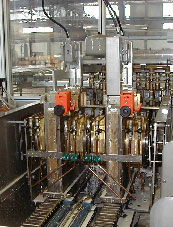




























 |
自動超音波
オンライン用装置
|
 |
| UT応用例 |
|
|
|
|
|
|
|
|
|
|
|
|
|
|
|
|
UTオンラインシステム
On the occasion of this year's Tube & Wire fair in Dusseldorf, the company
KARL DEUTSCH Pruf- und Messgeratebau GmbH + Co KG (NDT Instruments & Systems) presents
the current state-of-the-art of automated ultrasonic inspection. Ultrasonic testing is
used for the reliable and nondestructive detection of material defects. For more than 35
years, KARL DEUTSCH has shipped automated inspection systems to customers world-wide. The
focus was always placed on applications found e.g. in steel mills.
For ultrasonic bar inspection the tendency towards 100%-coverage of the cross section is
observed while high inspection speeds are also mandatory. The various inspection concepts
depend on the surface condition, the straightness and the diameter of the material.
For highest demands with respect to safety-relevant components, the HRP-concept
(High-speed inspection of Round Profiles) is recommended. The ultrasonic probes are placed
around the bar material. The immersion technique is used (figure 1). An important feature
is also the possibility to inspect various profiles such as squares or flats with only
little effort to change over the testing mechanics.
Two main applications are encountered for tube inspection. The full-body testing of tubes
uses concepts which are rather similar to bar testing. The second area is the automated
weld inspection. The most common application are tubes with longitudinal or spiral welds.
During the fair on April 10th, customers will have the chance to visit KARL DEUTSCH in
Wuppertal which is only 30km from Dusseldorf. A guided tour and a technical programme with
presentations including bus transportation is organised for approx. 3 pm.
|
 |
 |
 |
| The immersion technique (ultrasonic probes and test material
under water) is successfully implemented for the non-rotational inspection of long
profiles, |
possible angle-probe configuration for tube
inspection |
HRP-mechanics for bar inspection |